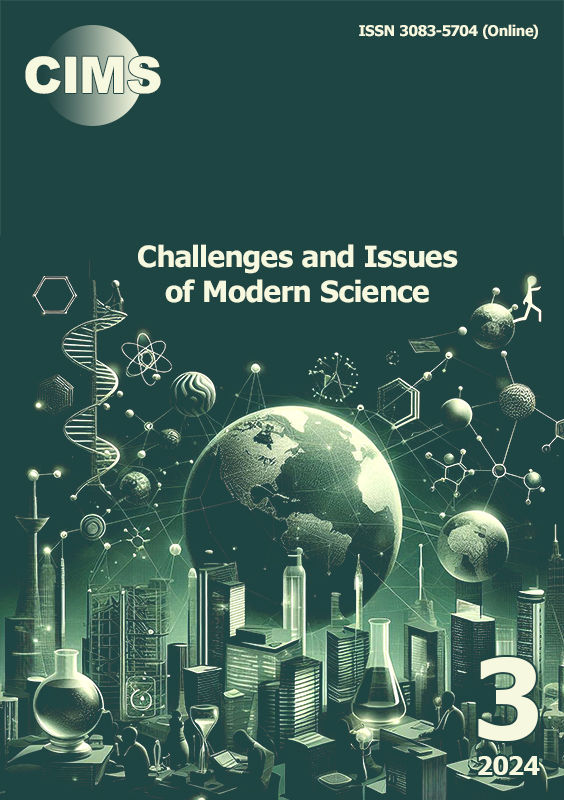Scientific and Technical Texts: Translation Aspects in Electrical and Computer Engineering
Keywords:
technical translation, terminology adaptation, cultural differences, lexical and grammatical analysis, scientific and technical texts, computer technology documentationAbstract
Purpose. The purpose of the paper is to study the lexical and grammatical levels of technical documentation in the English and Ukrainian languages, as well as to analyze the means of expression of English technical documentation in the Ukrainian language in the field of electrical engineering and computer technology in order to achieve adequacy. Design / Method / Approach. Research methods: theoretical study and analysis of literary sources on the problem of research; methods of linguistic analysis: descriptive and comparative methods, methods of classification and systematization. Findings. It has been established that cultural differences have a significant impact on the perception of technical information, which determines the need to carefully consider the context and cultural features of both the source and target audiences. Theoretical Implications. As a result of the theoretical analysis, various approaches to the translation of culturally specific information in the scientific-technical text were considered. Translation of technical texts is one of the most responsible types of translation. Practical Implications. The practical value of this study is that the obtained results can be taken into account and used for: a) solving current issues of bilingual communication, contributing to ensuring the compliance of scientific and technical terminology with international standards; b) provision of practical recommendations on the translation of technical documentation; c) development of special educational courses that cover the theory and practice of scientific and technical translation, as well as the creation of manuals and dictionaries of technical terminology. Originality / Value. The scientific relevance of the study consists in highlighting the methods of translation of scientific and technical terminology, which is constantly updated through productive means of word creation. Research Limitations / Future Research. The study can serve as a basis for further studies in this field and improve the methods of translation of scientific and technical vocabulary. Paper Type. Practitioner paper.
Downloads
References
Al-Abbas, L. S., & Haider, A. S. (2021). Using Modern Standard Arabic in subtitling Egyptian comedy movies for the deaf/ hard of hearing. Cogent Arts & Humanities, 8(1). https://doi.org/10.1080/23311983.2021.1993597
Hosshanthika, M. (2022). Translation of scientific text. In Proceedings of International Conference on Contemporary Management. http://repo.lib.jfn.ac.lk/ujrr/handle/123456789/5786
Ihnatiuk, O. (2022). Lexical and grammatical peculiarities of scientific-technical texts: current trends. Modern engineering and innovative technologies, (21-02), 174-176. https://doi.org/10.30890/2567-5273.2022-21-02-020
Maksymenko, L., Shostak, U., Trebyk, O., Kostyk, Y., & Malynka, Y. (2023). Features of Translating Scientific Texts into English. World Journal of English Language, 13(5), 514. https://doi.org/10.5430/wjel.v13n5p514
Moskaliuk, O. V. (2020). Translation of scientific and technical texts and peculiarities of their perception. Тrаnscarpathian Philological Studies, 2(14), 103–107. https://doi.org/10.32782/tps2663-4880/2020.14-2.19
Suima, I. (2024). Rocket engineering terminology in the English scientific and technical discourse: a translation aspect. Вісник науки та освіти, 5(23). https://doi.org/10.52058/2786-6165-2024-5(23)-48-61
Suima, I., & Novikova, O. (2024). The use of the Internet resources in teaching listening skills of students IT specialties. Сучасні дослідження з іноземної філології, 25, 491–499. https://doi.org/10.32782/2617-3921.2024.25.491-499
Downloads
Published
Issue
Section
License
Copyright (c) 2024 Irina Suima (Author)

This work is licensed under a Creative Commons Attribution 4.0 International License.
All articles published in the journal Challenges and Issues of Modern Science are licensed under the Creative Commons Attribution 4.0 International (CC BY) license. This means that you are free to:
- Share, copy, and redistribute the article in any medium or format
- Adapt, remix, transform, and build upon the article
as long as you provide appropriate credit to the original work, include the authors' names, article title, journal name, and indicate that the work is licensed under CC BY. Any use of the material should not imply endorsement by the authors or the journal.



















